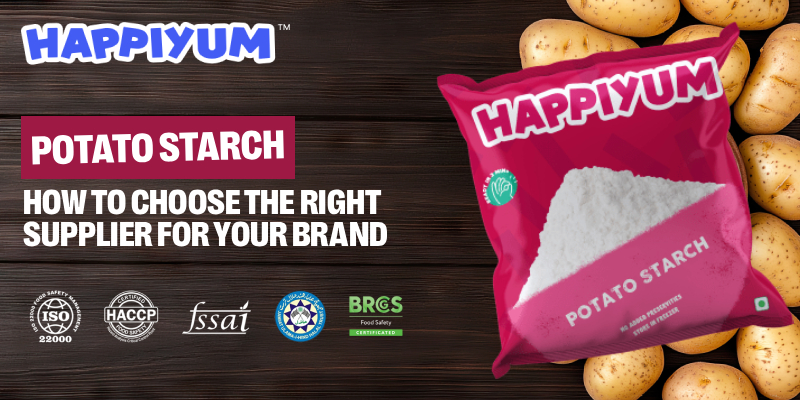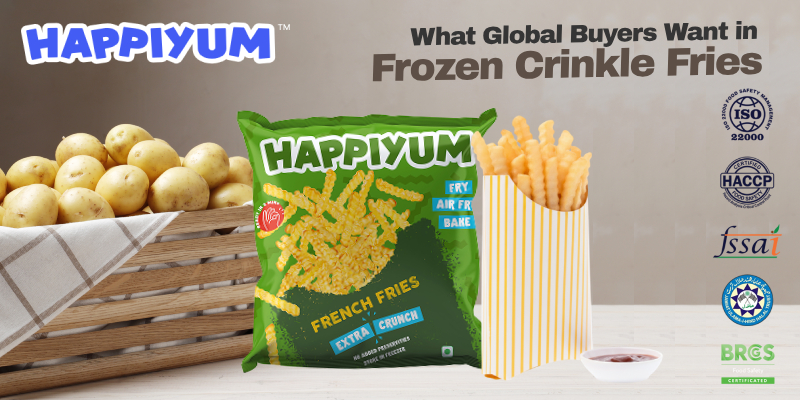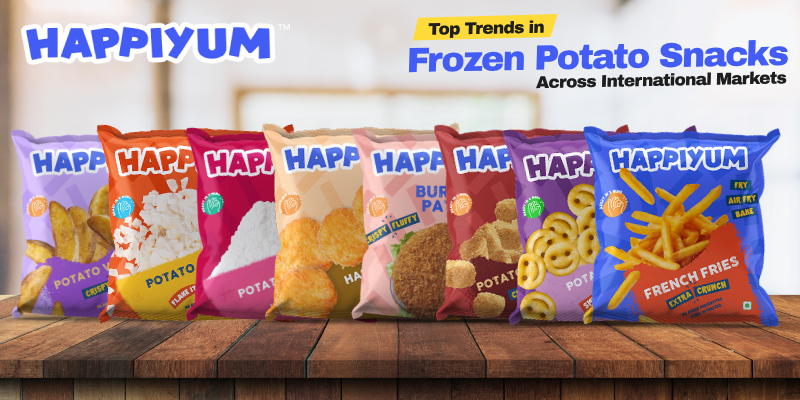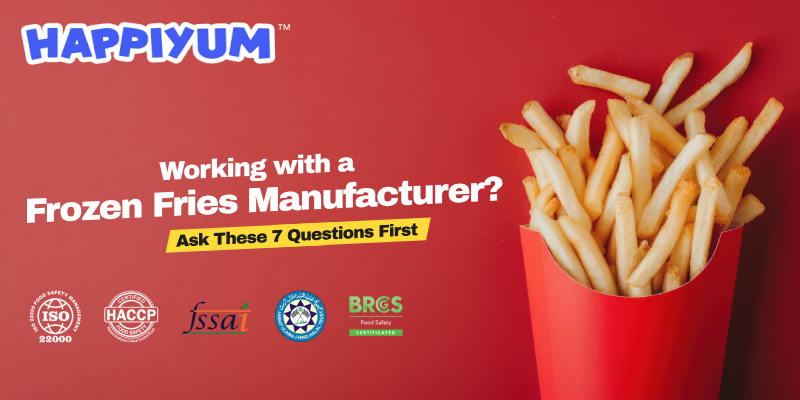August 31, 2025
How to Choose the Right Potato Starch Supplier for Your Brand

From Food Formulation to Industrial Strength – The Supplier You Pick Matters
“The quality of your product is only as good as the ingredients behind it, and potato starch is no exception.”
Potato starch is essential for companies involved in food production, snacks, sauces, ready-to-eat meals, pharmaceuticals, textiles, or paper. It is valued for its high thickening capacity, neutral flavor, gluten-free formula, strong binding capacity, and clean label. However, when it comes to sourcing potato starch, you must do more than submit an order; you must develop a strategic partnership that affects quality, efficiency, compliance, and eventually the reputation of your brand.
With a global market becoming FULL of suppliers, all claiming purity and performance, how can you select the best one?
The solution is to know not only the technical characteristics of the product but also the capacity of the supplier, its authorisations, its openness, and the prices it offers, as well as its logistics.
In this guide, we will take you through the process of assessing all you need to take into consideration when selecting a potato starch supplier to ensure that your brand operates with confidence and stability.
Key Factors to Consider When Choosing a Potato Starch Supplier
When you decide on a potato starch supplier, price considerations are not enough. It is a strategic choice that can have implications on the consistency of the products, product supply chain stability, regulatory compliance, and brand reliability. The most important factors to consider are listed below:
- Product Quality & Specifications
Start by examining the technical specs of the potato starch offered. Look for:
- Purity level (typically >98%)
- Moisture content (ideally below 20%)
- pH value
- Viscosity and gelatinisation temperature
- Granule size
These have direct effects on the texture of your final product, longevity in the shops, and the ability to be cooked. Where possible, ask for samples to pilot test in your own formulations.
2. Manufacturing Capabilities & Infrastructure
A trustworthy supplier must have a modern facility that is hygienic and technologically advanced and has good quality control mechanisms. This ensures:
- Batch-to-batch consistency
- Low microbial load
- The right procedure of drying, grinding and sieving
- Controlled packaged environments
Visiting the facility can give you deeper confidence.
3. Certifications & Compliance
Verify if the supplier fulfils the national and international standards of quality and safety:
- ISO 22000
- HACCP
- FSSAI (India) licences
- Certifications of Halal, in case they are needed
4. Sourcing Transparency & Traceability
It is important to know how the potatoes are grown. A good supplier must be open in:
- Potato variety used
- Farming practices (GMO-free, sustainable, etc.)
- Traceability from farm to factory
A clean label and responsible sourcing brands should make traceability an absolute necessity.
5. Scalability & Supply Chain Reliability
Can the supplier scale with you as you grow?
Ask about:
- Present Manufacturing Capacity
- Minimum Order Quantity (MOQ)
- Delivery time and delivery schedules
- Experience and documentation
There is a need to team up with a supplier that has experience in supplying goods to different parts of the world and a well-established logistics system that helps in the prevention of stockouts and delays.
6. Pricing Structure & Contract Terms
While quality should lead your decision, cost still matters. Compare:
- Price per kg/ton
- Freight and insurance options
- Payment terms (advance vs. credit)
- Flexibility in pricing during market fluctuations
Consider also any additional costs (storage or handling, or customs clearance, especially on overseas orders).
7. Technical Support & R&D Collaboration
Great suppliers don’t just sell products; they help your products succeed.
A technically equipped supplier can:
- Assist with application trials
- Offer formulation guidance
- Troubleshoot performance issues
- Help co-develop new textures or solutions
This is particularly valuable in those food startups, FMCG brands, or producers of an industrial line that want to differentiate.
8. Reputation, Reviews & References
Look for:
- Industry presence
- Case studies or references of familiar brands
- Verified reviews online
- Awards or recognitions
You do not merely pay for starch; you invite them to use your product pipeline. Reputation matters.
Why Happiyum?
- Consistent, high-purity starch (98%+)
- Modern processing units with strict quality controls
- Compliance with ISO, HACCP, and global safety standards
- Flexible MOQs and bulk export expertise
- Clean-label products
- Trusted by food manufacturers, pharma companies, and industrial buyers across markets
Happiyum not only supplies starch, but we also assist in creating stronger, better-performing products.
Do you want to develop more crispy snacks, silky sauces, or better-performing binders? We can be a pillar to your sourcing strategy.
Conclusion: Collaborate with Trust; Select Happiyum
In the rapidly changing food and industrial environment, the role of the correct selection of a potato starch supplier cannot be overestimated. As far as product consistency and compliance, ethical sourcing, flexible logistics, and so on are concerned, they will all contribute to the advantage of your brand.
And, in case you are interested in finding a partner who knows not only potato starch but also the worldwide realities of brands as well, connect only with Happiyum.
RELATED BLOGS

What Global Buyers Look for in Frozen Crinkle Fries (And How Happiyum Delivers)
Crinkle fries fill a special place in the world food market regarding frozen potato products. Their playful zig-zag cuts, crisp outer layer, and soft and fluffy interior make crinkle fries a delight to eat, look at, and touch. The ridges on crinkle fries are functional, in contrast to straight-cut fries; they expand the surface area […]

Top Trends in Frozen Potato Snacks Across International Markets
The world frozen food industry has experienced a radical change over the last ten years and there is still one category that is dominating the pack-frozen potato snacks. Since the era of the classic French fry, the market has grown way beyond simple sides and to innovations like seasoned wedges and frozen hash browns. Actually, […]

Working with a Frozen Fries Manufacturer? Ask These 7 Questions First
It is estimated that the French fries industry size in the world will reach 26.56 billion dollars in 2032, compared to the 17.94 billion dollars in 2025. Frozen French fries are no longer a side dish – they are the main course of menus of quick-service restaurants (QSRs), retail supermarkets, food delivery services, and catering […]